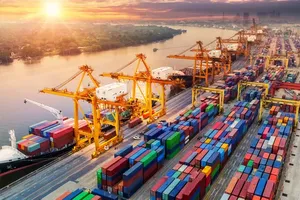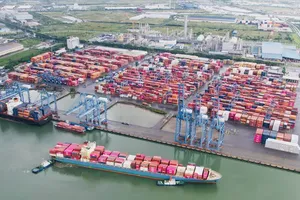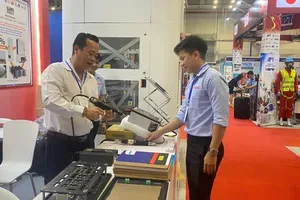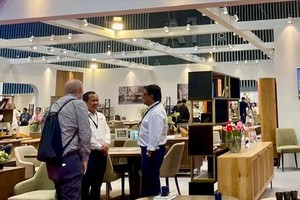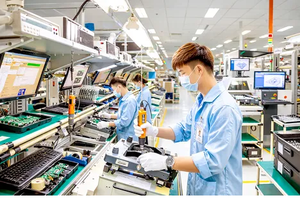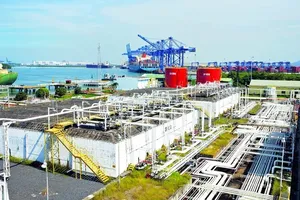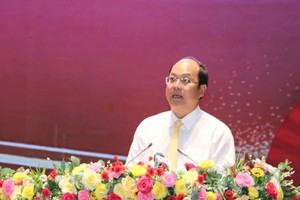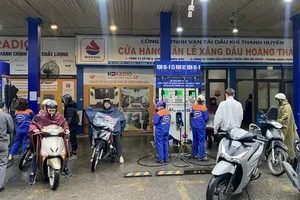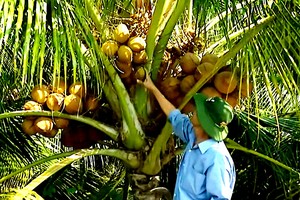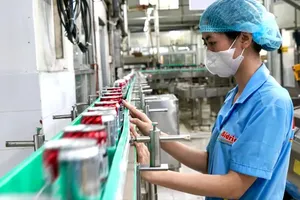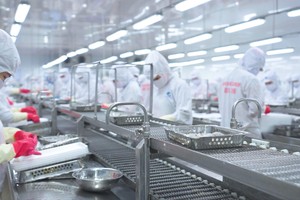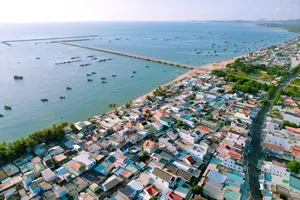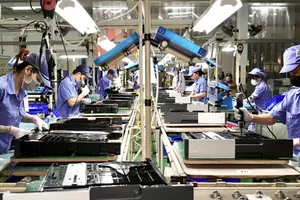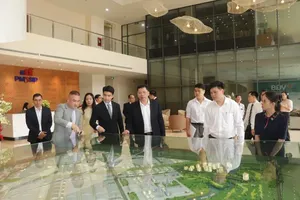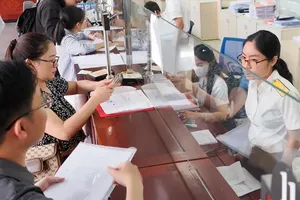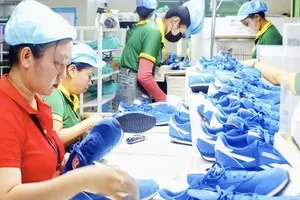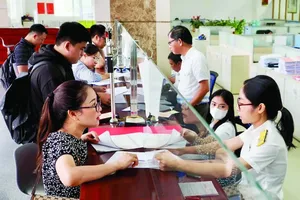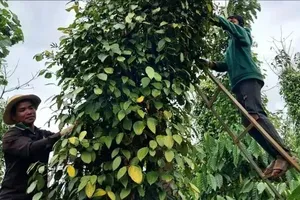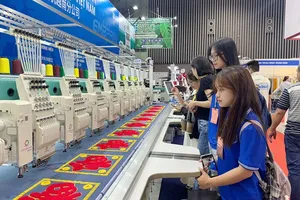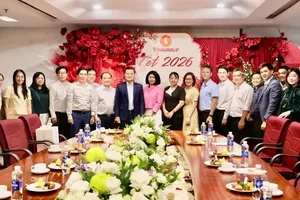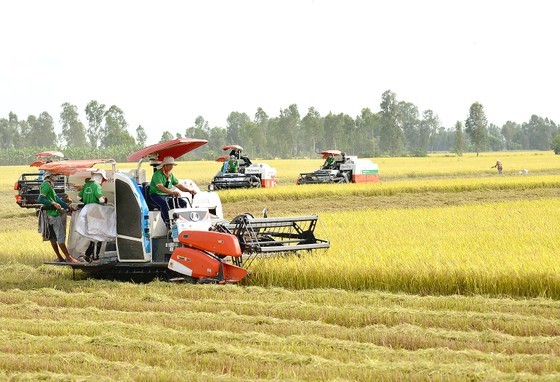 |
Farmers in the Long Xuyen Quadrangle area are harvesting rice. (Photo: SGGP) |
The project not only focuses on economic efficiency, food security, and increasing income of farmers but also ensures a multi-goal in the new situation, including adapting to climate change and reducing the amount of methane from rice farming contributing to change in production thinking, improving the quality, boosting the added value of products and the sustainable development of provinces in the Mekong Delta in general and Hau Giang in particular, said Chairman of the People’s Committee of Hau Giang Province Dong Van Thanh.
The main goal of the project is to help farmers sustainably produce rice, establish key areas of large-scale rice production with methodical investment and value chain linkage to increase the rice value and income of farmers as well as build a brand for rice and improve competitiveness. The development of one million hectares of high-quality specialized rice also aims to reduce greenhouse gas emissions associated with green growth.
The project is expected to reach a target of reducing the volume of rice seeds to 80kg per hectare, chemical fertilizer by 30 percent, and water on fields by 30 percent in 2025; reducing the volume of rice seeds to 80kg per hectare, chemical fertilizer by 40 percent, and water on fields by 30 percent in 2030.
World Bank's senior agriculture expert in Vietnam, Cao Thang Binh suggested the sale of carbon credits via the project when the Vietnam Sustainable Agriculture Transformation Project (VNSAT) has been successfully implemented to reduce a large volume of CO2 emissions.
Localities in the region have registered for participating in the project while businesses in the rice production sector are scrambling to register for production areas.
It is necessary to have specific policies to implement the project on planting one million hectares of high-quality specialized rice associated with green growth in the Mekong Delta to ensure food security and greenhouse gas emission reduction, help farmers reduce input costs, apply digitalization in the traceability of farm products and increase competitiveness, said Vice Chairman of the People’s Committee of Dong Thap Province Nguyen Phuoc Thien
